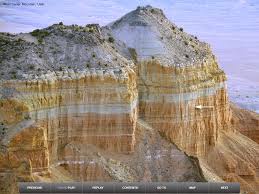Geology
Examination of the structure, composition, and history of the earth's rocky crust and interior. Geologists map the location of various rock types, then theorize about how the rocks were formed and why they moved and changed since their formation. They can locate mineral and water deposits, perform geologic surveying and mapping operations, and determine the suitability of construction sites. Areas of specialization include the search for valuable resources such as minerals and petroleum deposits; studies of the ocean bottom; construction consultation for dams and tunnels; classification and analysis of minerals and jewels; chemistry of the rocks; volcanology; examination of the forces that shape the earth's surface such as erosion, glaciation, volcanic eruption, and seismic shifts; the chronology of the rocks from radioactive decay; and the strata of rock in the earth's crust. A skilled geologist will be able to classify a rock and understand how it formed. He will also be able to estimate the odds that a significant geological event, such as an earthquake or volcanic eruption, will occur by applying models and instruments, plus examining historical records and geological data.
Views: 16681





